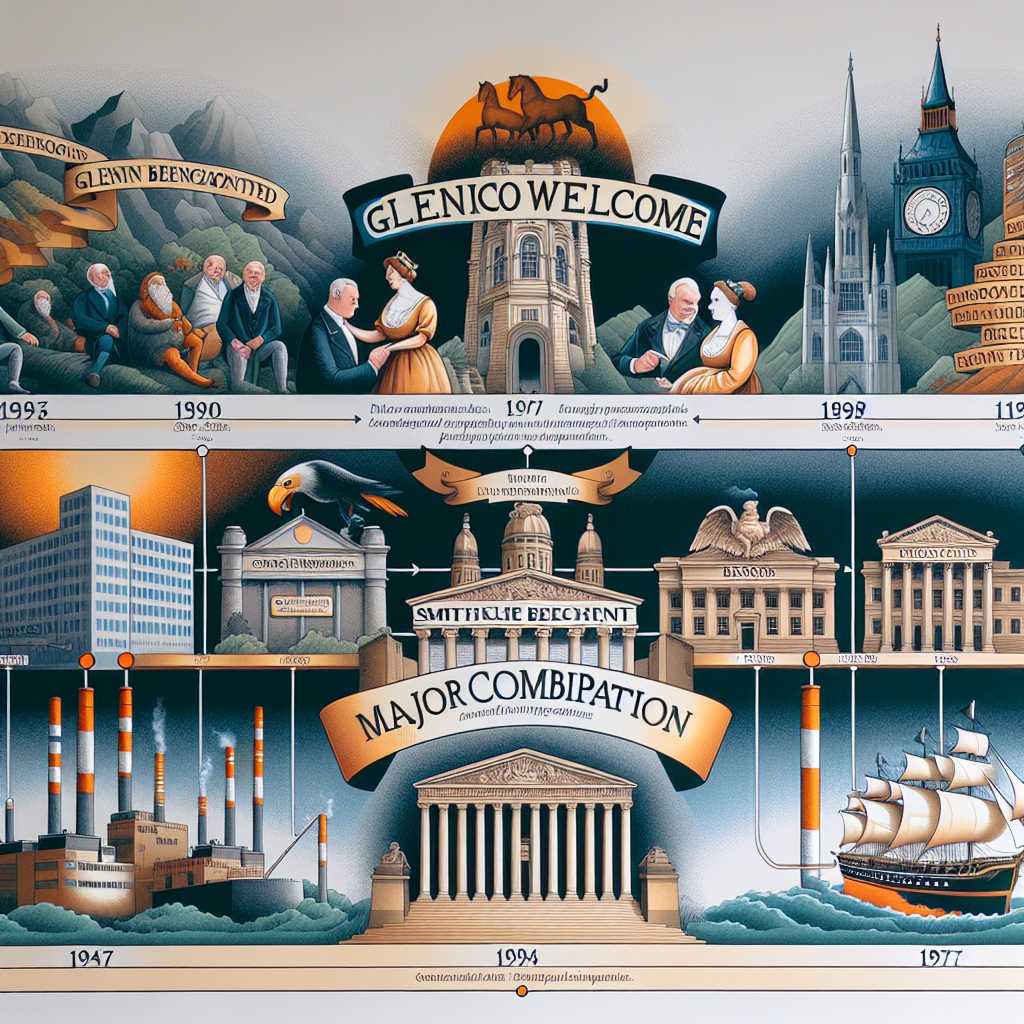The Global Impact and Evolution of GSK (GlaxoSmithKline)
GlaxoSmithKline (GSK) is a world-leading pharmaceutical and healthcare company known for its significant contributions to medicine and public health. With a vast spectrum of products ranging from prescription medications and vaccines to consumer health products, GSK has been at the forefront of healthcare innovation, disease prevention, and treatment for several years. This article explores the history, growth, and impact of GSK on global healthcare, along with its strategy, research and development (R&D), challenges, and the company’s approach to corporate responsibility.
A Brief History of GSK
GlaxoSmithKline’s roots can be traced back to 1715 when Silvanus Bevan opened Plough Court Pharmacy in London. Over the centuries, the company evolved through a series of mergers and acquisitions. GSK, as we know it today, was formed in 2000 through the merger of Glaxo Wellcome and SmithKline Beecham, two companies with rich histories of their own.
SmithKline Beecham’s Origins
SmithKline Beecham arose from a merger between the Beecham Group (a pharmaceutical company that could trace its history back to Beecham’s Pills in 1842) and SmithKline Beckman (originally from Philadelphia), itself a product of several mergers involving companies with roots extending back into the 19th century.
Glaxo Wellcome’s Legacy
Similarly, Glaxo Wellcome was formed in 1995 from the merger of Glaxo Laboratories and Burroughs Wellcome & Company. Both companies had made significant contributions to medicine, including Wellcome’s pioneering work in antiretroviral therapy for HIV/AIDS.
The merging of Glaxo Wellcome and SmithKline Beecham brought together a formidable range of expertise and resources, marking the birth of a new entity poised to become a powerhouse in global healthcare.
Evolution and Growth Post-Merger
Following its inception, GSK embarked on several strategies to solidify its position in the pharmaceutical landscape. It focused on expanding its R&D capabilities, strengthening its pipeline of medicinal products, broadening its global reach, and making strategic acquisitions that complemented its portfolio.
One notable acquisition was that of Human Genome Sciences in 2012, which allowed GSK to enhance its biopharmaceutical development capabilities. The company also made intelligent investments in areas like oncology and vaccines, adding numerous preventive and therapeutic solutions to its arsenal.
Strategic Prioritizing and Diversification in Pharmaceutical R&D
Central to GSK’s growth is its emphasis on research and development. Innovation has been critical in positioning the company not only in curative areas but also in preventive measures like vaccines. This focus enabled GSK to carve out a leading position in producing influenza vaccines and those preventing severe diseases such as hepatitis B, rotavirus, and human papillomavirus (HPV).
Challenges Faced by GSK
Like any major organization, GSK has not been without challenges. It faced legal disputes concerning patents and regulatory compliance alongside typical industry challenges such as ensuring drug safety, effectiveness, and coping with expiring patents of blockbuster drugs—affecting revenues due to emerging generic competition.
Moreover, pharmaceutical companies like GSK often face high levels of scrutiny concerning drug pricing and accessibility. Balancing profit with social responsibility has been an ongoing challenge for GSK amidst pressure from stakeholders and the public.
Corporate Responsibility and Community Health Initiatives
In response to global health concerns and ethical business practice expectations, GSK has made significant commitments towards corporate social responsibility. Their initiatives towards improving healthcare access for underserved populations particularly in developing countries have been notable. These efforts included reducing prices for patented medications in the poorest countries, improving children’s access to vaccines through collaborations with organizations like GAVI Alliance (now named Gavi, the Vaccine Alliance), and research focusing on neglected tropical diseases.
Also worth mentioning is their initiative to reinvest 20% of profits made in the world’s least developed countries back into training health workers and infrastructure in those states.

